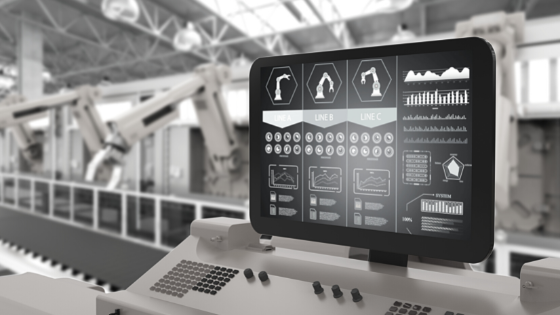Labour Shortages Affecting SMEs
In a time where staff shortages are continuing to plague industries across Australia, businesses can benefit by looking to long-term technology solutions to aid in easing pressure on employees.
The Australian Bureau of Statistics shows there are currently more than 423,000 job vacancies nationwide – a record-high. The labour shortage crisis is affecting all industries but can be particularly more challenging for SMEs that rely on people power.
In fact, labour shortages are the number one issue facing SMEs in Australia today. The AFR recently detailed that with 86 per cent fewer working holiday visas and 44 per cent fewer international students, the Australian workforce are overwhelmed with heavy workloads. This in turn diminishes time available to explore innovation, grow, and develop businesses and their people.

A major focus for providing some relief to business owners and staff, is integrating intelligent automation (IA) to alleviate the burden on manual processes which take up countless precious hours of the workday.
AI-driven automation can evaluate the day-to-day manual tasks and functions employees perform and identify the “drudgery culprits” employees find unsatisfying, suggesting ways to automate them by readjusting workflows to prioritise higher-value work like customer interaction and strategic thinking.
Looking to the Future
In business, IA technologies work to automate business workflows, in the office or from home. Once implemented, these automated workflows make it easier to be proactive and navigate unpredictability which is always a risk in business.
Think about it like this – customer-facing workflows require information to be captured, extracted, understood and organised. These tasks occur often at the very beginning of the transaction and can benefit greatly from artificial intelligence (AI). The better an organisation’s automation solution is at this stage, the less document-heavy, mundane workflow pressure there is on workers, and AI can make the difference.
Then you have the joys of manual data entry – every retailer’s favourite task, right? Keying and re-keying data from one application to another, whether it be ordering goods from multiple suppliers or manually updating financial data in your enterprise resource planning (ERP) platform is time consuming and prone to errors. It also takes longer to update systems if, and when, the terms of a contract change. Inaccurate and outdated accounts payable data can result in a failure to pay suppliers within the agreed upon terms, which puts a retailer at a greater risk of not receiving the goods they need to meet customer demand.
Where sectors such as supermarkets, hairdressing, restaurants and accounting are bearing the biggest brunt of staff shortages, and business owners are working overtime to keep everything moving, integrating automated workflows for tasks like invoicing can lessen some day-to-day pressure.
Dipping into the Automation playing field
Whether you’re looking to automate just a few high-value workflows or all of them, you’ll need a quality intelligent automation platform to get you there. When you do your research, keep an eye out for some key features you’ll need to achieve scalable, enterprise-wide automation that benefits your small business.
For instance, cognitive capture gives small businesses the ability to process documents faster and with fewer errors. This frees your employees precious time to focus more on strategic thinking – like how you can go about building your business. And at the same time, customers are benefiting from faster and better service.
Similarly, Robotic Process Automation (RPA) is the use of smart robots that can act upon and interpret data quickly and efficiently. This enables you to maximise capacity and efficiency for an agile, scalable workforce — critical for SMEs operating with minimal staff levels.
Artificial intelligence technologies like machine learning and natural language processing can extract and analyse data from structured and unstructured content. Vendor’s claim that their AI products will handle nearly everything, so be sure to look for real-time decision-making capabilities, and advanced analytics to provide actionable insight for faster, smarter decision making that can help your business in a multitude of ways.
SMEs shouldn’t have to focus on merely surviving. Intelligent automation and other technology commonly associated with big business gives them a clear competitive advantage that can help them grown in the short, medium and long term. By adopting IA, they’re positioned to build and then rely on a strong core of technology — allowing them to forge ahead and lead the way to success.
IA works to support human workers, not replace them. When there are automated processes in place to accommodate the day-to-day workflows within a business, it permits more capacity for staff to tackle and assess fluctuating external demands. With supply chain issues, staff shortages, geopolitical conflicts, and extreme weather continuing to affect businesses in Australia and globally, taking action through automation and digitisation presents an opportunity to ease stress and focus on the future.























